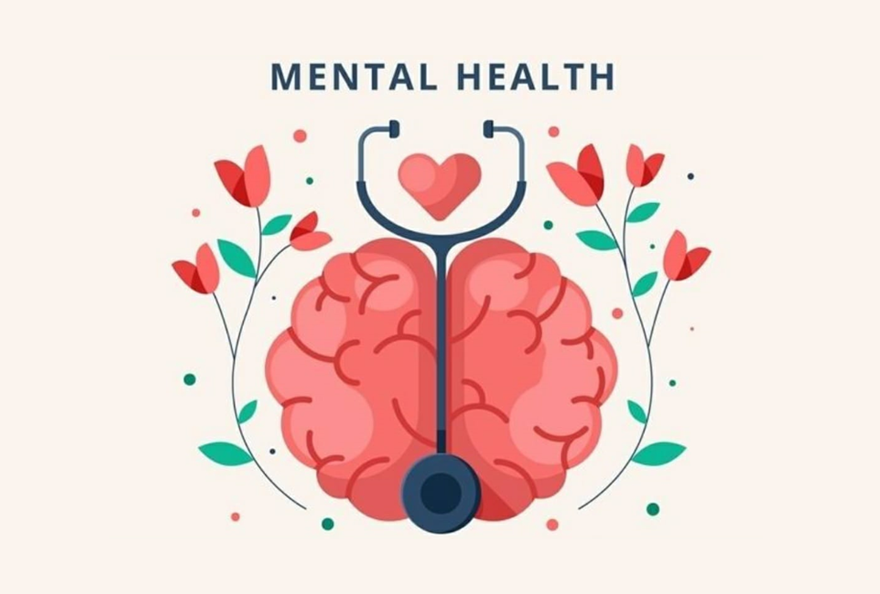
World Mental Health Day, a day that seeks to highlight the mental health issues experienced by individuals and launch new endeavors supporting mental health. Observed on Oct. 10, World Mental Health Day was announced by the World Health Organization (WHO), the International Association for Suicide Prevention, and the United for Global Mental Health.
The concept of mental health has recently gained even more popularity due to the widespread of Covid-19. The deadly pandemic gave rise to not just physical ailments but led to a global mental health crisis. Many individuals have shown signs of depression, stress, and anxiety since the COVID-19 Pandemic began. This unprecedented time of uncertainty has taught us that our mental health is equally, if not more, important as our physical health. Fret not, there’s a holistic way to press pause to these problems and improve mental health.
Ayurveda's Definition Of Health
Ayurveda, the ancient science of life, focuses on treating the whole mind-body complex as one. Ayurveda is the oldest healthcare science that has an elaborate mental healthcare system, right from prevention to management of serious mental disorders.
In fact, even the definition of Swasthya (health) in Ayurveda highlights the importance of comprehensive mental health in a healthy person. It is described as "swayam mein stith rehana", which translates to to be established in oneself
Prasanna atma indriya manaha swasthya iti abhidheeyate"
- Sushrut Samhita
The quote translates to - "The one with a balanced Doshas (biophysical forces), ignited Agni (digestive system), balanced Dhatu (body tissues), and excretory system; and endowed with a cheerful soul, senses and mind only can be truly called healthy!"
Ayurveda's View On Mental Health Management
Ayurvedic methods of mental health (Manas Shastra) management focuses on prevention and gentle treatments. Just like all other health conditions in Ayurveda, the dosha imbalance and the guna involved is the root cause of the ailment. Here's a brief about how different doshas and different Gunas influence your mental health.
Dosha types and their respective mental reaction to stress and impressions.
- An individual with a Vata dominated prakriti tends to react quickly, impulsively, and will be hypersensitive, agitated, and unstable. A Vata imbalance mind is more prone to fear, anxiety, compulsive thinking, and nervousness. When in balance, Vata dominated prakriti is gentle and spiritual and exudes creativity, free-spiritedness, and light heartedness.
- An individual with a Pitta dominated prakriti tends to get frustrated, agitated, and angry. When imbalanced, a Pitta type can become confronting, blaming, criticizing, aggressive, and even narcissistic. When in balance, Pitta-dominant individual exudes cheerfulness, courage, and the ability to take command.
- An individual with a Kapha dominated prakriti can become heavy, clouded, and dull, and veers towards indulgent and obsessive behavior, excessive sleep, insensitivity, and depression. In balance, Kapha dominated prakriti exudes stability, stamina, healthy digestion, calmness, compassion, and forgiveness.
The Tridoshas in balance leads to a pleasant and tranquil mind where the body and mind experience harmony and the individual feels healthy.
The Gunas are enumerated as the three attributes of the mind (perception, thoughts, emotions, and responses). When all three Gunas are in harmony, our body and mind function optimally. However, an excess of tamas and rajas can cause imbalance.
- ‘Tamas’ is associated with Kapha dosha. It brings grounding and stability. If imbalanced, Tamas can lead to inertia, stubbornness, greed, dullness, ignorance, and stagnation
- ‘Rajas’ is associated with Pitta dosha. It is responsible for activity, movement, passion, drive, and can help balance tamas. However, when imbalanced, Rajas can result in an aggressive nature display of overdrive, and craving for attention and power.
- ‘Sattva’ is associated with Vata doshas. It is the pure, balanced energy that stimulates peace, expansiveness, compassion, and wisdom. Sattva endows us with good mental health, happiness, and the ability to give our 100%.
While the body is commanded by the tridoshas (Vata, Pitta, and Kapha), the mind is characterized by two main forces: rajas and tamas. Rajas activates and intrigues the mind. It drives us to act, move, and change. Conditions, like anxiety, restlessness, etc. are a result of an excess of Rajas. Tamas, on the other hand, is the opposite of Rajas. This Guna slows the mind down, allowing us to rest. An excess of Tamas makes the mind ignorant and inert.
Understanding the concept of Gunas is important as they largely influence our lives. Gunas in harmony create all that we are, all that we see, and all that remains unseen. While Tamas cements our foundation and provides stability, Rajas provide us vitality and breath and sattva imbues our everyday life with consciousness, peace, and compassion.
When these two Gunas are in balance, a person can achieve sattva, which is characterized by intelligence and harmony and endows us with good mental health. The one with the sattvic state of mind seldom errs in physical aspects or mental. Therefore, harmony between the two Gunas is a must to achieve peace of mind.
Working toward a sattvic state of mind is the best thing you can do for your mental health, and there are numerous avenues suggested by the ancient science of healing to help us deal with stress and achieve optimal mental health. You can read more about it on our blog Manage Stress And Anxiety With Ayurveda.

Comments (0)
Back to News